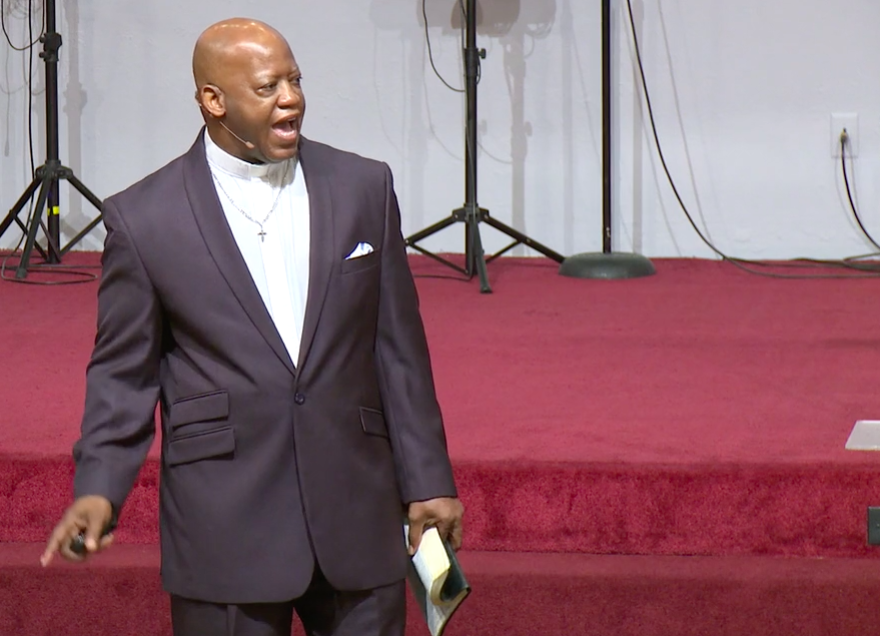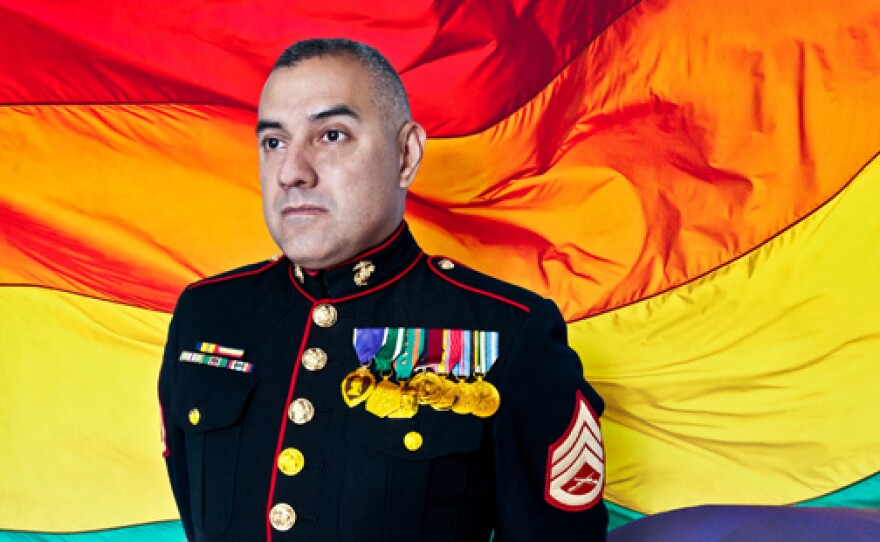As the first Marine injured in the Iraq war, Eric Alva fought for American freedoms. As a gay veteran, he fought to abolish ‘Don’t Ask Don’t Tell’—after enduring the discriminatory policy for years.
“It was exhausting,” says Alva. “It was stressful, because you’re always having to just lie. You wonder, ‘Is this the day I’m going to go to the brig or be fired?’
And when San Antonio took up a proposal to bar discrimination against LGBT people and veterans in housing, city employment and public accommodations, Alva visited a jam-packed City Hall each week and fought to gain the understanding of a heated horde of religious opponents.
“I’m a Purple Heart recipient,” says Alva. “I lost my leg. I sacrificed for this nation. I could still be thrown out of a restaurant if the owner wants to throw me out. So, I said that, and the opposition started booing. It was heartbreaking, because I remember going to my car after City Council, and I just started crying.”
It’s been three years since San Antonio approved changing its nondiscrimination ordinance—or NDO—to protect gay, lesbian and transgender citizens. The controversy that surrounded that decision seems to far outweigh the measure’s actual impact today.
In those three years, the city has received just seven complaints of discrimination based on sexual orientation or gender identity.
“I would emphasize that the number of complaints filed with the office are not an indicator of the level of discrimination that might be happening,” says Kiran Bains, the city’s very first Diversity and Inclusion Officer. “That’s because we know historically across the country discrimination goes underreported.”
Bains says all seven complaints were either dismissed by her office or withdrawn by the person who made them. So, nobody’s landed in court or been fined, but Bains says she’s made reporting discrimination easier in her year on the job.
“There’s significant progress that has been made in recent years,” says Bains. “I think we are well on our way to be a leading city in terms of being inclusive of our LGBT populations. That’s not to say our LGBT populations in San Antonio are not facing discrimination. They absolutely are.”
The national LGBT advocacy group the Human Rights Campaign grades cities nationwide based on LGBT equality measures. Bain points out that San Antonio’s score is way up.
“Currently, our score is fourth in Texas,” says Bains. “We increased it by 25 percent from 2014 to 2015. And we are currently behind Austin, Fort Worth and Dallas.”

Bains says that’s because those cities have NDOs that also apply to private employers. San Antonio’s law only protects city workers or those working at companies with city contracts. If landlords, bosses or business owners do violate the ordinance, it’s a class C misdemeanor.
Attorney Justin Nichols says that’s a slap on the wrist.
“The maximum fine would be $500 to be paid back into the city’s budget and general fund,” says Nichols. “So this ordinance does not make the victim whole.”
Nichols has represented two of the seven people who filed complaints under the NDO. One was dismissed and the other was settled privately. Before the Office of Diversity and Inclusion, Nichols says there wasn’t a clear way to file a discrimination report.
“When we first started, it took us two months to find a city office who was willing to receive a complaint, much less have a streamlined process on how those would be taken in,” Nichols says.
As a gay lawyer, Nichols says discrimination is a fact of life for LGBT citizens with or without the controversial law.
“I don’t think functionally it has changed how safe LGBT people feel in their jobs or accommodations on a daily basis, but it is a statement that—as a city as a whole—we have a particular belief in favor of equality,” Nichols says.
But the whole city does not share that belief. Pastor Charles Flowers bussed hundreds of churchgoers to City Hall in an effort to convince council members to vote down the NDO.
“They dismissed those voices and went with the decision they had already made in the back room of City Hall,” Flowers says.
At Flowers’ Faith Outreach Center International, signs on restroom doors tell transgender visitors to keep out. Religious exemptions in the NDO allow for that, but Flowers wants to see the whole ordinance overturned by voters.
“We’re not satisfied with such an ordinance—even to this day—being in the books,” says Flowers. “When the time is right, and when the constituency is right, we’ll put forth the efforts to make sure that that’s changed, as it did in the city of Houston.”

Houston voters repealed their similar ordinance last year, but petitioners in San Antonio have failed to gather enough signatures to land on the ballot.
NDO supporters also want changes. State Representative Diego Bernal wrote the proposal as a councilman, but thinks it didn’t go far enough.
“I only went as far as I could. If we can identify the places where we can do more, well then that’s something the council should take up,” says Bernal. “I think we sort of milked that success for all it’s worth and now it’s time to do more.”
Meanwhile, conversations about protecting local LGBT populations are playing out across the map. San Antonio is one of at least 12 major cities in Texas and more than 250 nationwide with similar NDOs on the books.




